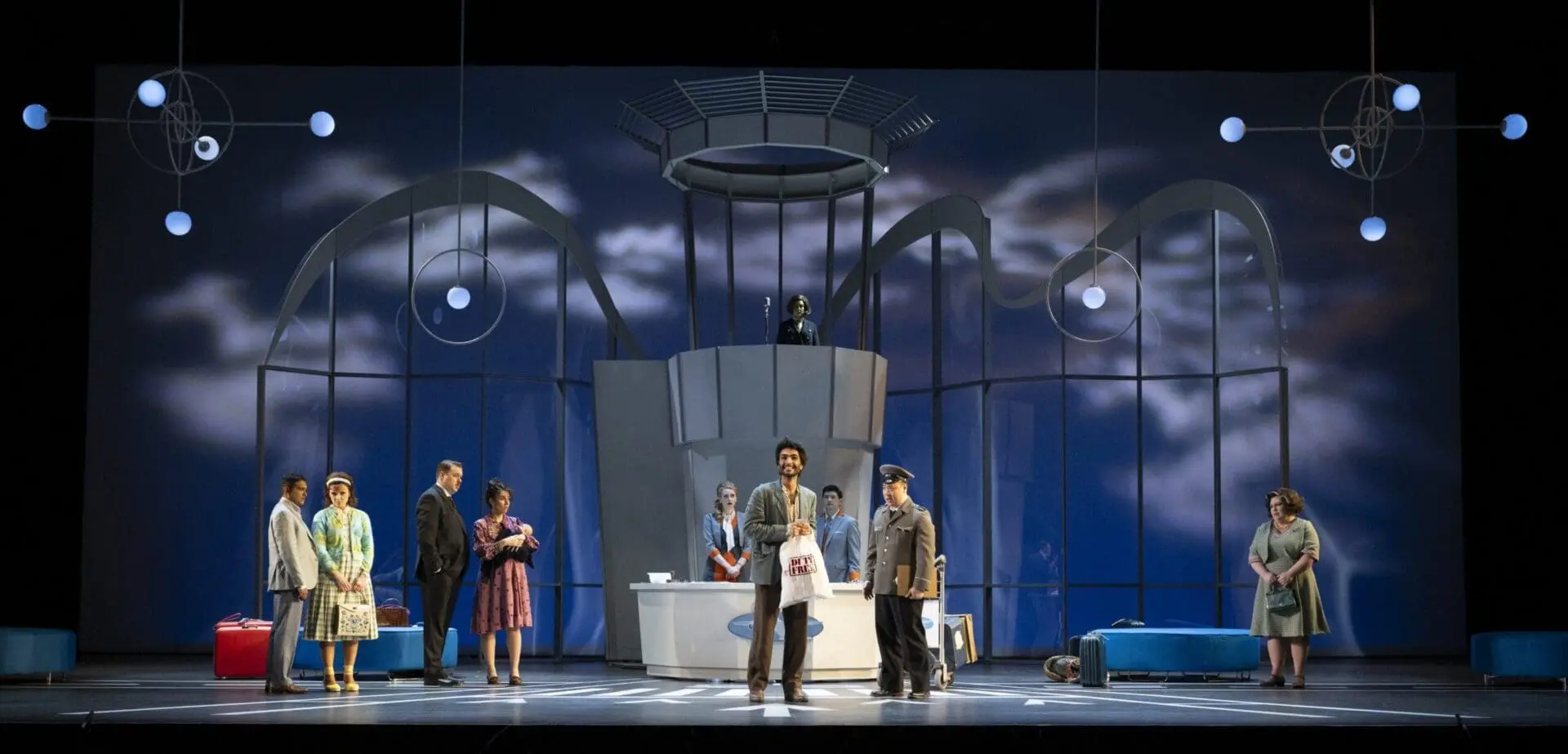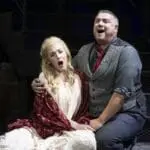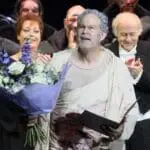My expectations for the Vancouver Opera production of Jonathan Dove’s Flight were high.
Not only has Dove been dubbed “the Mozart of the 21st century,” but the 2020 Pacific Opera Victoria production by the legendary Canadian duo of set designer Ken MacDonald and director Morris Panych, which has been revived here with some revisions, was apparently Dove’s favourite. The set, inspired by the TWA Flight Centre at JFK, exudes the mid-century optimism of air travel and the 60s-inspired theme of Vancouver Opera’s 65th anniversary season. But sadly, much like the protagonist – the Refugee – whose story is inspired by the real life one of Iranian Mehran Karimi Nasseri who spent 18 years living in limbo in the Charles de Gaulle Airport, this production never quite took off.
A mix of comic and tragic, with the forthrightness of Britten and the ethereal quality of John Adams, and embodying a liminal airport space caught between earth and sky, the opera is a tricky one to get right. Flight, which premiered in Glyndebourne in 1998, requires a deft directorial hand to balance these competing tensions. What could have been a very timely production, capturing both the fickleness of the West towards its refugee policies and the very human struggle to transcend the boundaries that trap us, became a pastiche of slapstick and worthiness – a kind of sanctimonious opera buffo.
That said, the musical direction by conductor Leslie Dala mastered the often deceptively simple yet challenging score, dense with polyphony and repetitive motifs. Indeed, there were many appealing individual moments in the opera, but they never quite gelled into a viable whole.
The opera began on a high note – quite literally – with a lovely duet by rising star countertenor Cameron Shahbazi as the Refugee and Caitlin Wood as the Controller. Here the music and libretto (by April de Angelis) shone, with Wood’s soaring soprano intertwining with Shahbazi’s expressive voice was made even more otherworldly by Dove’s semitones.
Their argument about the purity and privilege of the rarified world of flight compared to the grittier human condition (“Who needs people? / I need people”) is a theme that underscores the whole opera, and yet one that never quite came together in this production. Scenes with the Refugee and the Controller were compelling, but ones with the other passengers who initially ignore the Refugee’s plight – a married couple hoping to rekindle their romance, a diplomat and his pregnant wife en route to a new assignment in Minsk, and a steward and stewardess who can’t keep their hands off each other – were less engaging.
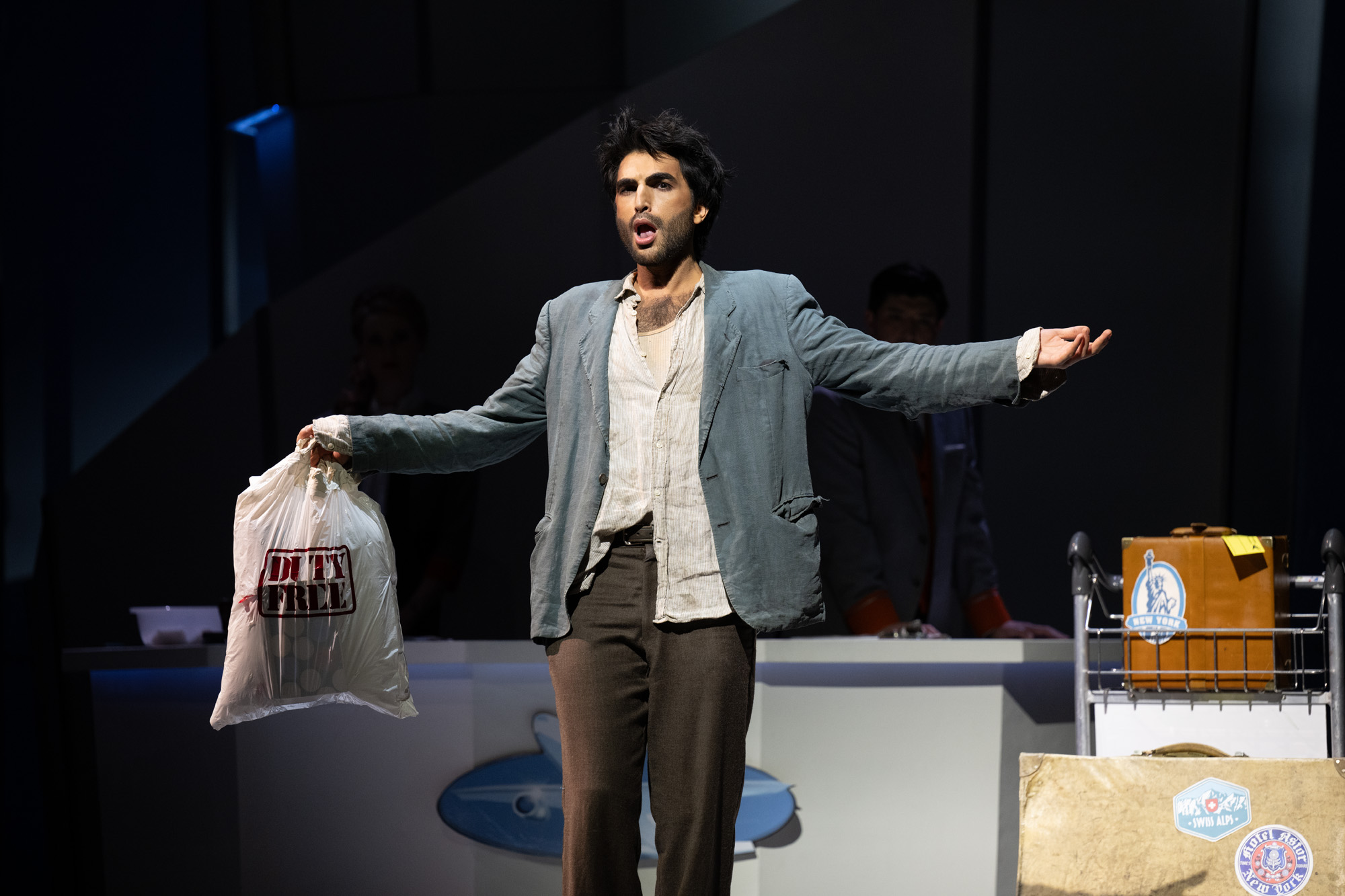
Photo Credit: David Cooper Photography
Cameron Shahbazi as the Refugee in Flight
While the first act was well paced, the second act, where the Controller played a kind of Prospero to the Refugee’s Ariel announcing that a storm had grounded everyone, made me wonder “Who needs these people? What would an opera more centred on the relationship between the Refugee and the Controller have been like?” The other passengers seemed almost extraneous. Lacking focussed direction, the second act left operagoers as listless and bored as the unfortunate travellers trapped in the airport.
While the downtrodden husband Bill (well played by Asitha Tennekoon) enjoyed a surprise tryst with the steward in the control tower, the women were lured by the Christ-like Refugee’s “magic stones” as talismans of change, which he offers to them in turn for their “help.” When they lose faith in the genuineness of the stones, the women’s sudden, violent turning on him and their shift from friendly to ferocious (especially in light of new Trumpian realities) could have proved genuinely menacing, but in this case just felt disjointed and awkward. After all, depicting the banality of evil should never be banal, but rather terrifying.
Having survived the intermission – where life imitated art with a huge line-up to the subterranean loos – I returned to a third act that almost redeemed the whole experience. While I still found myself uninterested in the plight of the stranded passengers, there was a bit of a moment when the Minsk Woman (played by Stephanie Tritchew) held her newborn child and sang a love duet with her husband (Neil Craighead reprising his role from the Victoria production), although it felt more televisual than operatic. (Perhaps fittingly, the television broadcast of Flight led directly to Dove composing an opera specifically for television, When She Died, about the death of Princess Diana. It was watched by nearly a million people in the UK alone.)
But the moment we’d all been waiting for, the climax to all the banality and wink-wink nudge-nudge jokes, was Shahbazi’s achingly beautiful aria about the Refugee’s terrifying experience of having fled his homeland with his twin brother hidden in the wheels of a plane. When the Immigration Officer – a second deus ex machina to the Controller – informed him that the brother he’d been waiting for actually fell from the sky to his death, frozen, there was a genuine, terrifyingly human yet transcendent moment of poetry as Shahbazi sang, “A frozen man falling like a frozen star.”
And then, as the passengers’ ascended the stairwell to a giant airplane projected onto a scrim and disappeared into the sky, leaving the Refugee to his limboed fate, “This is my home now.”
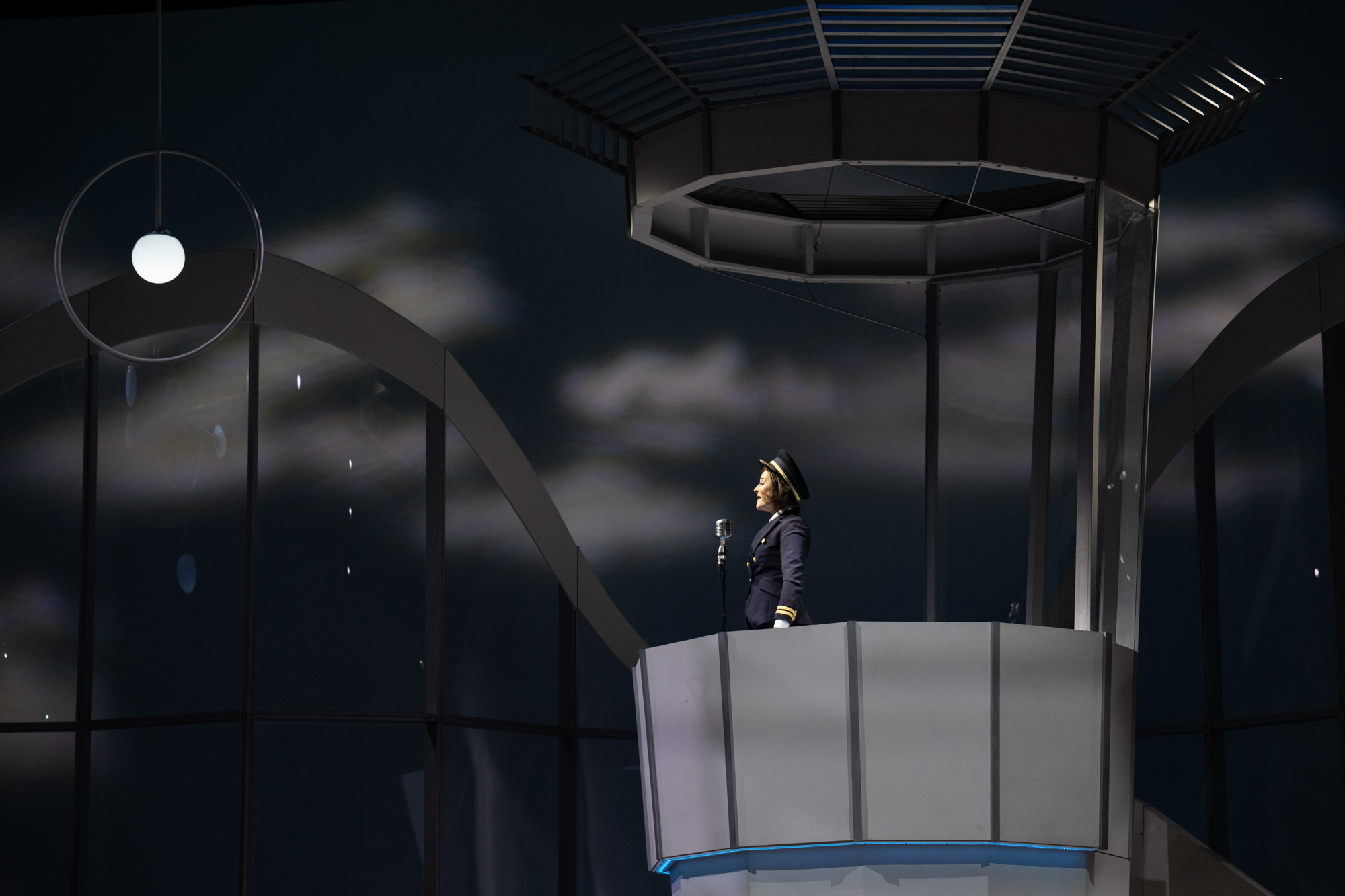
Photo Credit: David Cooper Photography
The Controller (Caitlin Wood) in Vancouver Opera’s Flight
Opera Canada depends on the generous contributions of its supporters to bring readers outstanding, in-depth coverage of opera in Canada and beyond. Please consider subscribing or donating today.


